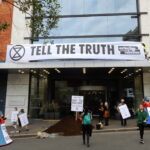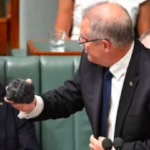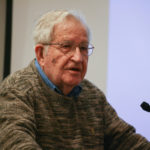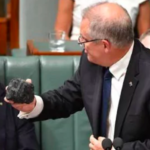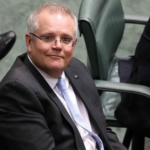Berejiklian Short-Sighted on Uranium: An Interview With Uranium Free NSW’s Natalie Wasley
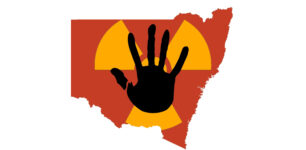
The O’Farrell government attempted to end the state ban on uranium mining and exploration in the early years of last decade. And while it succeeded in lifting the 26 year moratorium on exploring, due to pushback, the ban on mining the radioactive substance remains.
However, One Nation’s Mark Latham introduced a bill in mid-2019 that seeks to lift the state ban on uranium mining, as well as nuclear facilities. And while this seemed like the NSW MLC was baying for attention again, the legislation was sent for review, and the committee recommended backing him.
At the time the review report was delivered, NSW deputy premier John Barilaro announced that his party – the Nationals – would be backing the bill. And this led the Berejiklian cabinet to meet on 24 August to deliberate on whether it would be supporting Latham.
Following the meeting, the Liberal Nationals government announced that it has decided to consider lifting the uranium mining ban, but under its own legislation. It seems resurrecting widely derided nuclear is still a better look for Gladys, than publicly backing One Nation.
A nuclear free NSW
O’Farrell was floating getting into bed with nuclear at a rather problematic time, as the 2011 Fukushima nuclear disaster had just taken place.
The Japanese catastrophe was cited in the NSW Nuclear Free Charter that was produced in opposition to the government push.
Despite the spin around nuclear being a clean energy source, the charter points out that uranium mining brings severe environmental damage, contaminates water systems, and it puts workers and communities at risk of radiation exposure.
The charter was supported by a coalition of concerned civil society groups, including Uranium Free NSW, The Greens, Friends of the Earth, NSW Labor, the CFMEU, United Voice, Greenpeace, the Maritime Union of Australia and the Australian Conservation Foundation.
“As history shows, uranium mining makes little economic sense and leaves a lasting radioactive legacy,” the charter states.
And what’s even more bizarre about the recent talk of lifting the moratorium is that since the charter was released the bottom has fallen out of the industry. Nowadays, there’s next to no profit in uranium.
Maralinga no more
Uranium Free NSW spokesperson Natalie Wasley knows the issues around uranium mining all too well. She fought for years alongside First Nations communities in the Northern Territory campaigning against nuclear waste being dumped on country.
The no nukes campaigner has visited the disaster site at Fukushima, she’s met with survivors of the Hiroshima and Nagasaki blasts and she’s spoken to those still impacted by the British bombs tests that took place on this continent at Maralinga.
Sydney Criminal Lawyers spoke to Natalie Wasley about the government considering uranium when there’s no money in it, the damage the toxic metal can cause, and why transitioning to renewables is obvious, but still ignored.
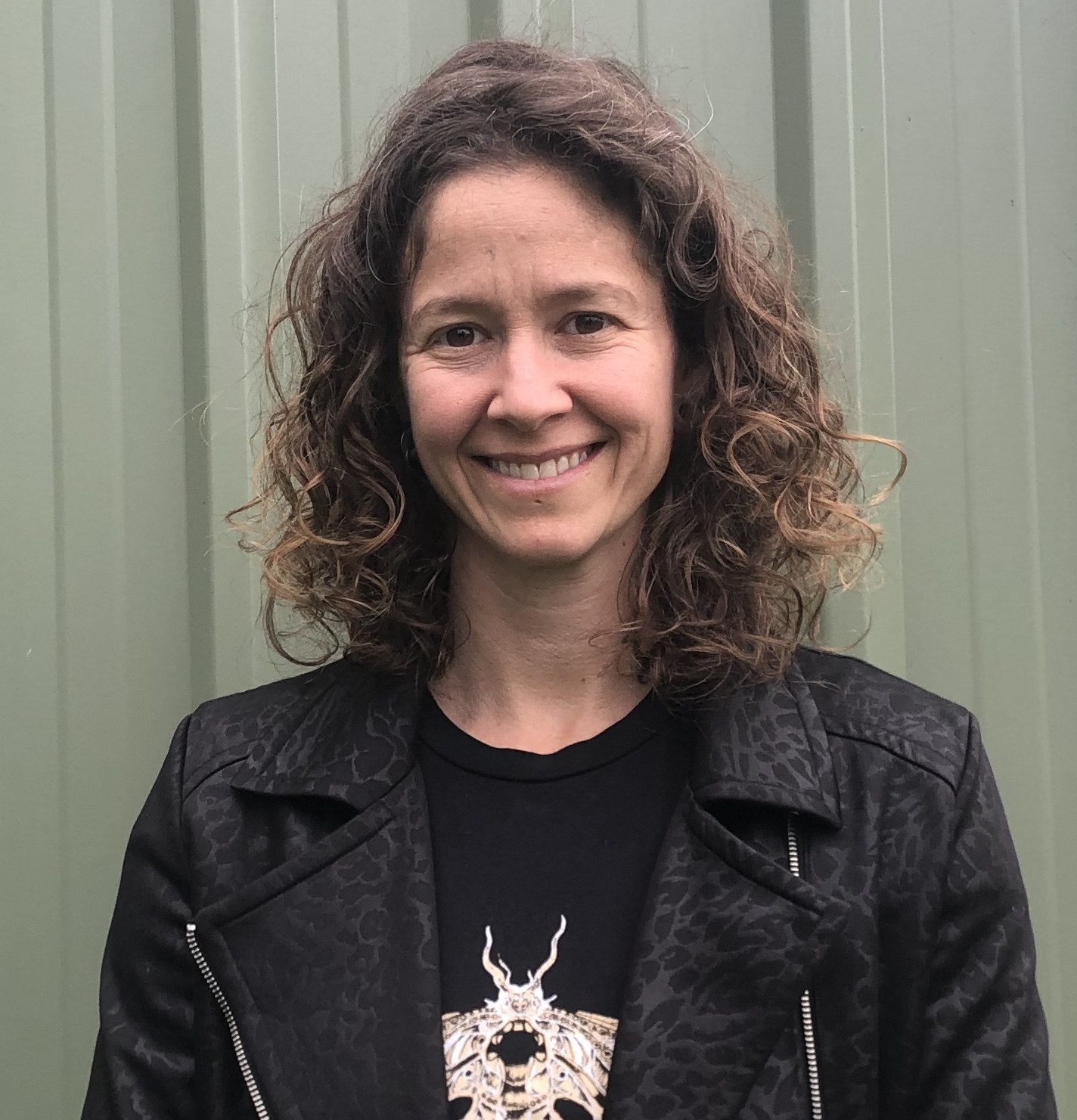
Firstly, the Berejiklian government came to a decision on 24 August to consider lifting a decades old uranium mining ban in NSW.
Natalie, you’ve long fought to keep uranium in the ground. How did this state’s ban first come into play?
The ban on uranium mining has been in place in NSW since the late 80s. So, it’s been a part of the fabric of state politics for that time.
During the 80s, the movement against uranium mining had massive support across the country.
We saw bans on transport. Workers were stood down. In Melbourne, wharfies walked off the job after police broke up a demonstration that was opposing uranium transport.
So, at the time, there was quite a lot of momentum around the country for this ban to be instated and to keep the uranium in the ground in NSW.
The Coalition government has decided to contemplate legislating the lifting of the ban, after Nationals leader John Barilaro said his party would be supporting a One Nation bill that sought to do the same.
What would a lifting of the prohibition on uranium mining mean for the state and its people?
The economic benefits would be very limited. The price of uranium has been depressed since the Fukushima disaster, and it’s not likely to recover any time soon.
We’ve seen the CEO of the largest uranium mining company in the world, Cameco, say last year that it doesn’t make sense to invest in primary supply.
He considers leaving uranium in the ground the best decision currently to preserve the long-term value through the economic lens.
So, there would be few jobs created for this. And it’s a very short-sighted proposal in that sense. And while there would be few jobs, what would increase significantly is the risk.
We know that every step of the nuclear chain uses a lot of water, which creates contamination – that’s right from the process of exploration, through to mining and then later on in its life as nuclear power and, of course, the legacy of radioactive waste.
Waste is a massive problem both in Australia, and across the world. There’s still not a high-level waste dump operating anywhere. And there’s no national repository for waste in Australia either.
The final point relates to the social disruption that’s caused by the nuclear industry.
We’ve seen time and again the difference in tactics used by the industry and the impact that this has on traditional owners and communities who have a proposal on the table in front of them.
Their sacred sites are often fenced off and people are denied access to very important parts of country, and there’s a very real understanding of the health risks involved in this industry.
And there are many people connected to the legacy of radioactive fallout across the country from the nuclear bomb tests that happened here in the 50s and 60s.
What areas of NSW would be affected in terms of uranium mining? And how have First Nations people in those areas been reacting to this news?
The areas that seem to be indicated as possible for mining are around Dubbo, the New England region and around Broken Hill.
First Nations groups and land councils in those areas have stood up strongly ever since the proposal first came out in 2011 and 2012.
And now that it’s reared its head again, we’ve seen the Dubbo Regional Land Council come out very strongly against it.
I know that the sentiment remains in the other regions as well. People are strongly opposed to uranium mining happening in their areas.
So, there was a proposal to lift the ban in 2011?
That’s correct. That was one of the reasons why Uranium Free NSW formed, in response to that.
What happened at the time is that the ban on exploration was overturned, but the ban on mining remained.
There was a lot of work done with the communities in the local areas to make sure they had access to all the appropriate information at that time, and there was an opportunity for them to speak and be heard on what they thought of these projects.
There was a coalition of groups that came together to sign a uranium free charter for NSW. That involved trade unions, public health organisations and other civil society groups.
It very clearly said that the future for NSW should be renewable – not radioactive – and the investment needs to go into future jobs: climate jobs and the long-term sustainable industries that we need.
We don’t need a rehashing yet again of the dirty dinosaur industry that is the nuclear industry.
In your opinion, why is the Berejiklian government turning towards uranium now?
Uranium mining, nuclear power and proposals for nuclear waste dumps come up regularly. It’s something that people see, wrongly, as an easy economic fix.
It’s a very short-sighted economic opportunity. It’s one that people seem to grasp onto, thinking it is a simple dichotomy of energy production- coal vs nuclear- without actually understanding that we need to be investing in other industries.
There is a whole range of opportunities that are ready to go if the level of investment that’s put towards coal and nuclear was put toward renewables.
It would open up new opportunities and industries across NSW that would be far better for the environment, create a lot more jobs in rural and regional areas, and these jobs would be better for young people going forward.
The decision to consider lifting the ban seems to be tied up with the push to move away from fossil fuels, with nuclear being seen as some sort of clean energy source.
Why isn’t uranium and nuclear energy a clean alternative?
When you are looking at the pollution from nuclear, you need to consider the entire lifecycle of the industry: all the way from exploration, mining, transport to water use and waste storage. It’s massively polluting.
We’ve seen the example in Kakadu National Park, with the area that’s been sectioned off for the Ranger Uranium mine in Jabiru.
There’s been massive contamination spikes in the creeks downstream. This is in the middle of a World Heritage area.
There are many more layers of scrutiny built into that mining operation, than there would be in a remote NSW location. Kakadu is an icon, yet we still see pollution at this mine site.
It’s very clear that at all operating nuclear facilities around the world there have been leaks. There has been contamination, and there have been spills.
It goes right to the extreme that we have seen in Fukushima. And it’s been confirmed from the government that uranium mined in Australia was present in all the stricken Fukushima reactors.
So, we’re linked from the very source right through to those disasters. And it’s not something that we want to be extending our tentacles into around the world.
We need to be looking at what would be most beneficial for the environment and communities in NSW.
So, in your opinion, what would be of most benefit for NSW?
We need to be looking very seriously at large scale investment in a range of renewable industries.
We know the technology is there. We know that it can meet the energy demands of NSW. But what we need is investment.
As I said earlier, there is a false dichotomy created between coal and nuclear. And while coal has many problems, nuclear can never be the solution.
One major issue for NSW has been the drought. Again, nuclear facilities use massive amounts of water and the risk of contaminating that water is high.
There has been strong resistance to the proposals since they first arose in 2011. And historically, across the country, traditional owners have led campaigns against uranium projects on their country.
That coalesced under the banner of the Australian Nuclear-Free Alliance, which is a network that has been together for more than 25 years.
It’s led and directed by affected community members from areas where there are uranium and nuclear facilities operating, or where they’re proposed to be.
That forum, where people share their personal experiences of interacting with mining companies, has been really important in strengthening people’s understanding of how to approach these proposals and understand the health risks.
There’s a lot of work in communities that has been done by medical associations and public health associations, including the Medical Association for Prevention of War.
It’s a very complex health area, but it’s one that really needs to be built into the discussions around whether it can go ahead on country.
And lastly, Natalie, if we can see fossil fuels are destroying the planet, with nuclear energy being no alternative, and renewables are right there to invest in, what’s with successive Australian governments ignoring this?
It’s very short-sighted politics. What we need to be doing is looking at the hundreds of thousands of young people who have been out on the streets consistently for years now.
We need to be looking to the scientists that have been speaking out for decades saying that the climate crisis is urgent.
We need to redesign our systems of energy production to be more beneficial, less polluting and more forward-thinking.
The radioactive waste and the legacy of the uranium industry is going to be around a lot longer than any of the politicians trying to make these decisions now.
So, they need to be looking forward and thinking about what sort of legacy should be left. This needs to be one that will go well into the future, not one that requires radioactive waste needing to be managed for generations.



